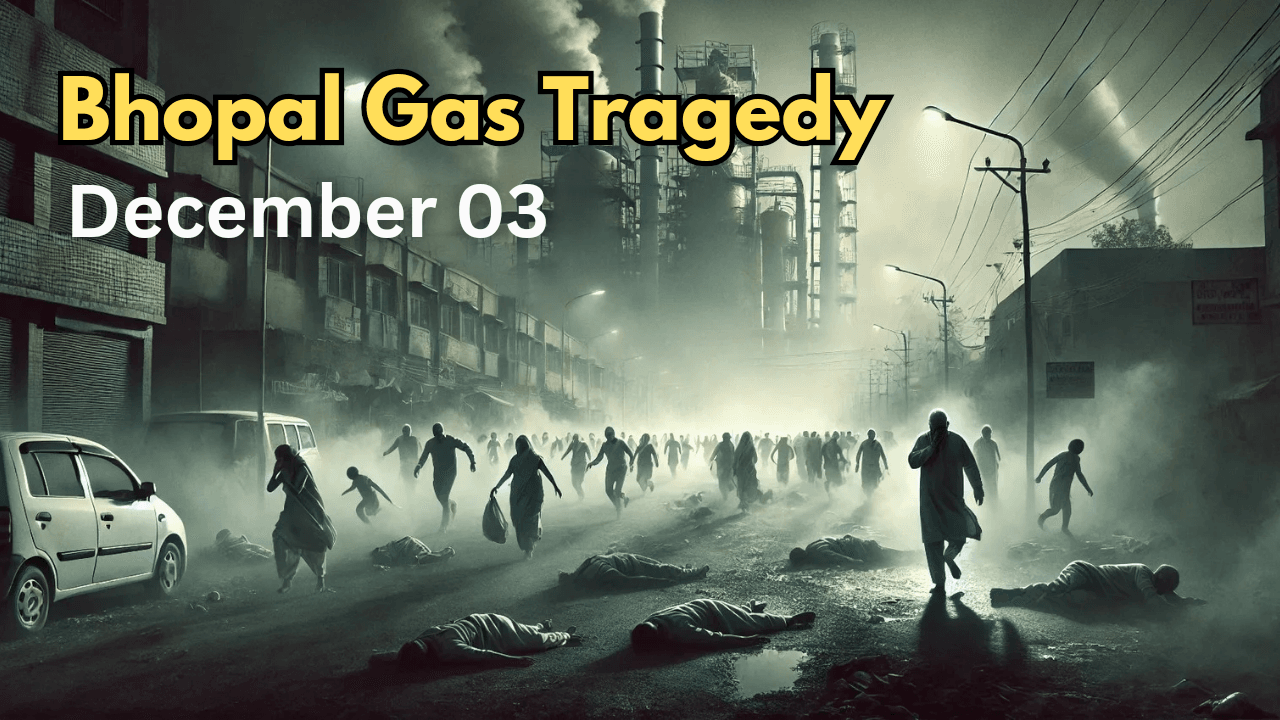Bhopal, December 3, 2024: Today marks the 39th anniversary of the Bhopal Gas Tragedy, which is one of the world’s worst industrial disasters. The tragedy had claimed thousands of lives and left an indelible scar on the history of India. The incident occurred on the night of December 2–3, 1984, when a deadly cloud of methyl isocyanate (MIC) gas leaked from the Union Carbide pesticide plant in Bhopal, Madhya Pradesh.
A Night of Horror
By midnight, a noxious cloud of gas spread across densely populated areas around the plant. Hours later, it was pandemonium: people who were overcome by severe shortness of breath, burning eyes, and continuous coughing. Many died in their sleep; others died trying to get out of their homes.
Immediate estimates were done at about 3,000 deaths, but other reports showed that over the years, more than 20,000 lives lost due to the residual effects of the gas. Over 500,000 people got exposed, and the later health issues included respiratory disorder, birth defects, and other neurological problems.
The Aftermath
It highlighted glaring lapses in safety protocols and the negligence of Union Carbide Corporation (UCC). Investigations revealed inadequate maintenance, understaffing, and a total lack of a comprehensive disaster management plan.
There was legal battle, and UCC settled for a fee of $470 million in 1989. A figure that many deem utterly paltry considering the destruction brought by the disaster. There have been calls from activists and survivors for additional redress and cleanup of the toxic site, which has still presented environmental and health issues to the area.
A Legacy of Resilience
In the face of tragedy, people in Bhopal have shown tremendous resilience. NGOs and survivor groups have worked around the clock to support victims, provide medical care, and lobby for stricter industrial safety regulations.
On this somber day, events are being held across the country to honor the memory of those who perished and to raise awareness about industrial safety and environmental responsibility. Survivors and activists emphasize the importance of learning from this disaster to prevent similar catastrophes in the future.
A Call for Accountability
This day of the Bhopal Gas Tragedy marks another grim anniversary for the world as a reminder of what may result from corporate negligence and weak regulatory frameworks. It brings out the very basic requirements of stringent safety measures, robust disaster management systems, and unwavering accountability in the protection of human life and the environment.
Today, the people of Bhopal and the entire nation stand united in commemoration to renew the commitment never to forget lessons learned from this fatal night.
Also Read Chernobyl Nuclear Disaster



Average Rating